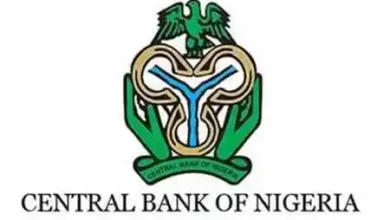Buhari Hails CBN, NDIC, NAICOM, Others On Financial System Stability

President Muhammadu Buhari has commended the Central Bank of Nigeria (CBN), Nigeria Deposit Insurance Corporation (NDIC), Security and Exchange Commission (SEC), National Insurance Commission (NAICOM) and other critical Stakeholders for their diligent work which has ensured financial system stability in the Country over the years.
Buhari gave the commendation while declaring open the 15th Annual Banking and Finance Conference organised by the Chartered Institute of Bankers of Nigeria (CIBN) Tuesday in Abuja.
Represented by the Minister of Finance, Budget and National Planning, Mrs Zainab Ahmed, the President assures government’s support for the industry to continue to deliver on its mandates.
“Let me seize the opportunity provided by this gathering of key stakeholders in the finance and banking sector to commend the regulators of the industry (Central Bank of Nigeria, Nigeria Deposit Insurance Corporation, Security and Exchange Commission, National Insurance Commission) and other critical Stakeholders for their diligent work which has ensured financial system stability in the Country over the years.
“I wish to also assure the entire banking and finance community that Government will continue to support the industry in all appropriate ways to ensure the Sector continues to deliver on its mandates while creating value innovation for its customers”, he said.
Buhari noted that government would continue to formulate and implement policies that are aimed at promoting self-sustenance in critical areas such as energy, agriculture, health, technologies and awaits the outputs of the Conference as inputs for the process.
He said, the theme of this year’s conference “Repositioning the Financial Services Industry for an Evolving Glocal Context” was apt in view of the need to constantly adapt internationally acceptable best practices to improve the efficiency and effectiveness of the sector in playing its primary role of holding financial assets, financial intermediation and capital formation.
He said, the expediency of discussions on repositioning the sector within an evolving glocal context cannot be over-emphasized as it stands to benefit from the experiences of other nations in navigating through emerging issues such as the fall-out from the COVID-19 Pandemic and the on-going Russian-Ukraine war which have global implications on financial service delivery in local economies.
He listed opportunities for the repositioning of the Nigerian financial sector to promote financial inclusion and the diversification of the nation’s economy to include:
•Deepening the market and expanding product offering across the various segments of the industry to adequately finance Nigeria’s infrastructure and business investment needs as well as developing strategies to encourage Insurance penetration in Nigeria.
•Leveraging on the growing Non-Banking Financial Institutions (NBFIs) in the country to crowd in capital from pension funds and insurance assets through well-structured and risk-mitigated financial instruments to broaden and deepen the country’s financial markets.
•Deploying innovations in Fintech for the extension of financial services to the under-served population as well as expanding the product space by taking advantage of the opportunities provided by other digital trading platforms such as Warehousing, Collateral Management and Crowdfunding.
•Raising funds to finance the infrastructural needs through the issuance of revenue bonds, securitizing government assets and adopting other private finance arrangements, that allow private sector to provide services and infrastructure to the public transparently and competitively, thereby allowing for efficiency and improved revenue generation.
•The creation or expansion of inclusive platforms for green investing, access to affordable healthcare as well as Nigeria’s creative industry which has in recent times seen local contents exported to the international market.
He highlighted some of the key socio-economic issues being currently tackled at both local and global levels to include; Climate Change, Eroding Purchasing Power Due to Inflation and Insecurity.






